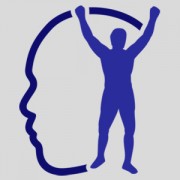“You cannot discover new oceans until you have the courage to lose sight of the shore.”
-Anonymous
Sometimes people get it.
Sometimes they don’t.
There was an overwhelmingly positive response to yesterday’s message. People who I didn’t know were loyal blog readers told me that they enjoyed reading my daily messages and that they were applying it to their own lives.
They get it. They are taking action.
But sometimes people don’t get it.
One of my students had a match recently and I was going to stop by, free of charge, to show my support and give some tips. So I called the mother to ask what time the match was. She told me and then I said, “I will try to stop by.”
There was a pause, and then she said, “Ed…can you not stop by?”
“Because last time you stopped by, she was very nervous and couldn’t play well. And this time, she actually has a chance of winning.”
I agreed to not stop by and after I hung up the phone, I started to think about what she had said. And it disturbed me.
First of all, when a coach offers to stop by a tournament, at no charge, to support a student and offer advice, you say, no thank you?!
Okay, let’s take my ego out of the equation.
She should not even know if I’m there. She should be focused on the match.
This player is already ranked in the state and on her high school tennis team. She needs to be put in pressure situations, whether it’s dealing with his coach being there, or something else. This wasn’t the US Open, and even if it was, would you say, “Hey coach, this is the semis of the US Open, can you not come?”
I think the main thing that concerns me is that the mother is coddling this girl and she cares more about the results than the improvement. She is conditioning her daughter by saying, “Oh, you’re nervous? Don’t worry, I’ll protect you.”
It’s like training a puppy. When you train a puppy, you don’t pick them up or give them attention when they cry, because then you’re telling them that it’s okay to be scared of everything.
When I was training my puppy, I remember taking her outside to “do her business.” It was raining, thundering and lightning. At the first boom of thunder, she cowered, came near me and looked at me. I immediately looked away and acted like everything was fine. We kept walking, she did her business and we went inside. And now she has no problem with thunder and lightning. I conditioned her.
Baby elephants in Asia are tied to a stake by a rope. They quickly get conditioned that they cannot go past a certain point. But as they get older, and become large, strong animals that can easily break free, they don’t. They have been conditioned.
People are the same way. How we condition ourselves (and our children/students/pets) is how they will turn out. By no means is this permanent, but it can be.
In what ways are you conditioning yourself?
It is your choice if you make it positive or negative.
“She actually has a chance of winning this one?”
She may win a trophy.
But she loses much more.
Thanks for reading.



